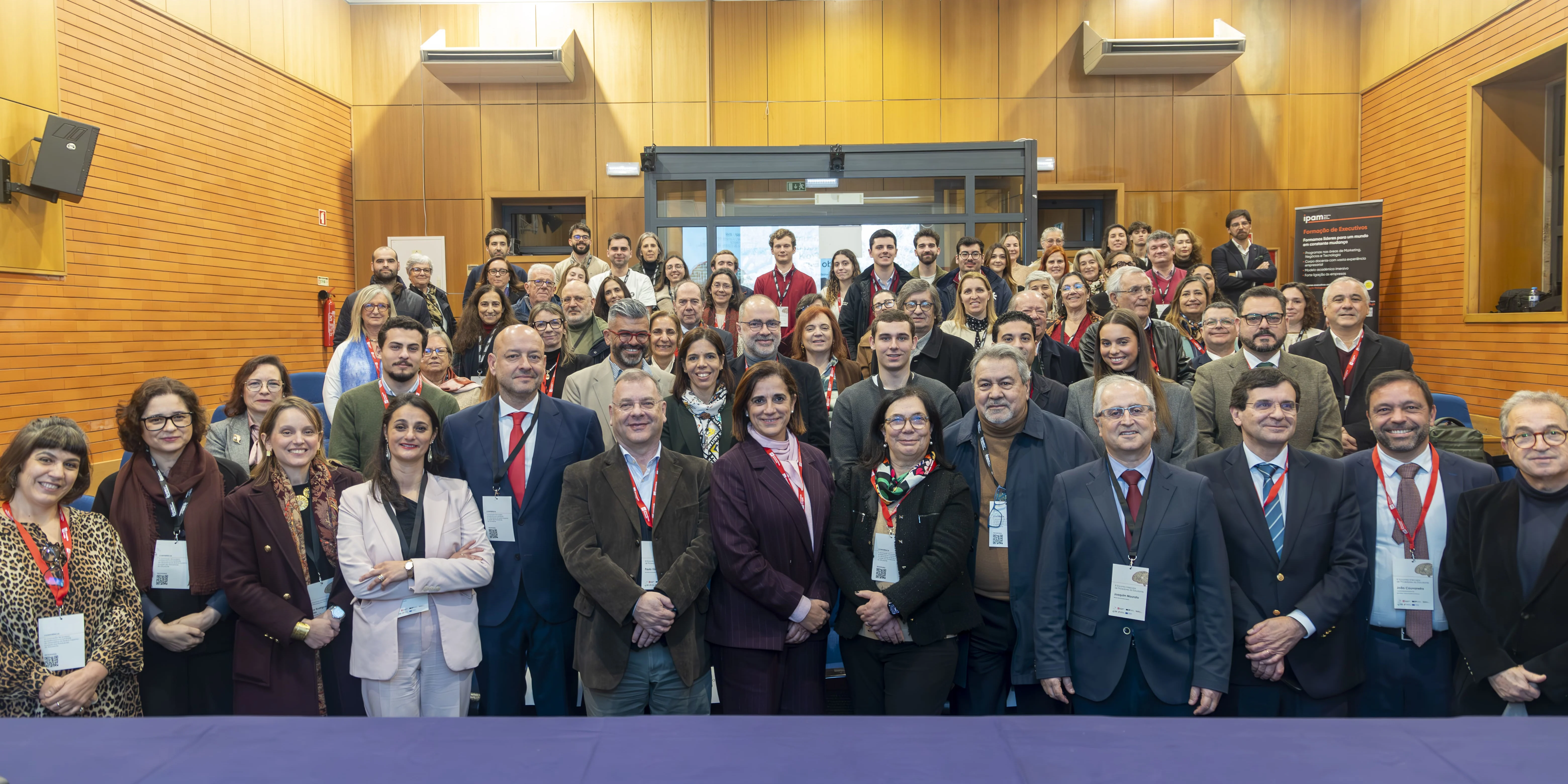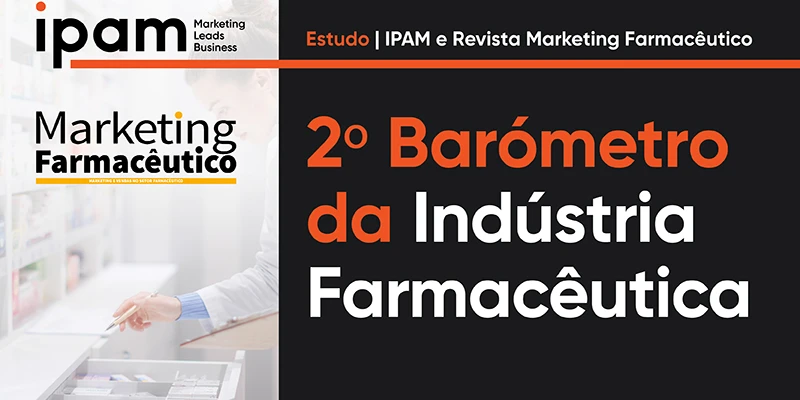
Reducing school drop-outs requires concrete measures, warn experts at the Student Ombudsmen Meeting
February 11 2025
Read more
The questionnaire assessed the sentiment of study participants in two ways: one at the level of participants' sentiment towards the pharmaceutical industry (outlook for the pharmaceutical activity for the next 12 months, outlook for the pharmaceutical activity for the next 3 years, Net Promoter Score and investment prospects in the next year) and another aimed to identify perceived constraints of the pharmaceutical industry (fiscal uncertainty, economic developments, increased competition, raw material price increase, labour environment, public sector debts, change in drug prices, headcount decrease, disinvestment in the NHS).
As a result, it was possible to observe that, in general, there is a positive outlook for the pharmaceutical industry for the next 12 months. In fact, 62% have a good or very good outlook for the pharmaceutical industry for the next 12 months. Less than 1% have a very poor outlook and 37% of the sample have a poor outlook, thus 38% of the sample have a negative outlook. This concludes that there is a positive short-term climate for most in the pharmaceutical industry.
When an analysis is made taking into account the professional occupation, it can be seen that there is a statistical difference between professionals in the marketing area and professionals in the commercial area and directors and managers. Statistically there is no difference between professionals in the commercial area and directors and administrators, their evaluation is identical. Participants working in marketing are the most positive, 85% have a positive outlook for the next 12 months. Just over half, 52%, of sales professionals, directors or officers of companies in the pharmaceutical industry have a positive outlook.
As for the outlook for the pharmaceutical industry over the next 3 years, the majority of professionals have a positive outlook for the pharmaceutical industry activity. In fact, 68% of the sample has a good or very good outlook for the pharmaceutical industry for the next 3 years. In contrast 33% of the sample have a negative outlook for the pharmaceutical industry. However, only 2% have a very bad outlook, lower than the 5% of respondents who have a very good outlook for the industry for the next 3 years.
When comparing the outlook at different time horizons it can be seen that survey participants are more negative in the short term, but more positive in the medium term. Thus, 62% of the sample has a positive outlook at 12 months, but at three years the figure rises to 68%. Inversely 38% of the sample is negative at 12 months, but the value decreases to 32% in a 3-year perspective. It can be concluded that for some of the participants the industry might be going through a short-term crisis.
However, compared to 2019, a worsening of medium-term expectations can be seen. The 3-year expectations in 2023 are worse than the 3-year expectations in 2019. In 2019 79% of the sample had positive expectations in 2023 that figure drops to 68%. In 2019, 21% of participants had a negative outlook for the pharmaceutical industry, however this figure worsens, and in 2023 32% of the sample has a negative outlook.
Similar to the short-term outlook, the professional occupation of the respondent also has an influence on the 3-year outlook. Here the vast majority of marketing professionals - 92% - are positive towards the pharmaceutical industry for the next 3 years. In a 3-year scenario, there are fewer directors, managers and sales professionals with a positive outlook compared to marketing professionals.
In terms of investment prospects for the next year, around half of respondents say their organisations will maintain their level of investment. However, more respondents say they will decrease their level of investment than those who plan to increase. In fact, 22% who say they will increase their investment, but 30% of the sample say they will decrease their investment.
Compared to the 2019 investment scenarios, it can be seen that there is a decrease in investment appetite. In 2019, 34% of participants stated that their companies would make investments, in 2023 this figure fell to 22%.
These figures are consistent when comparing the 3-year outlook figures for 2019 and 2023. It can be concluded that there is more apprehension in industry.
The indicator with the worst performance is the one that evaluates the potential of a professional career in a company operating in the pharmaceutical industry, the Net Promoter Score (NPS). According to the results, 40% of the respondents are detractors, i.e. they have reservations when it comes to recommending a professional career in companies in the pharmaceutical industry. Only 10% of the sample would clearly recommend a profession in the pharmaceutical industry. Thus, the NPS value is -30%, which indicates that there are more participants not recommending a career in the pharmaceutical industry compared to those who recommend a career in this industry.
Despite showing a negative value in 2023, the NPS is better than that of 2019. According to the results, 40% of respondents are detractors, which is the same value as in 2019. However, there are fewer liabilities: the value has declined from 50% in 2019 to 39% in 2023. Contrarily, in 2023, 21% of respondents would recommend a profession in the pharmaceutical industry. Thus, the value of the NPS is -18.
Compared to 2019, the NPS values in 2023 have improved substantially. In 2023 there are more people recommending a career in the pharmaceutical industry than in 2019.
Thus, 3-year expectations are better than 12-month expectations and, more relevantly, long-term expectations and the recommendation of a career in the industry, have improved relative to 2019.
As noted, nine factors of possible constraints in the pharmaceutical industry were measured. The relevance of the factors and their impact on the industry was measured by the sleep quality of the study participants.
The four factors of most concern to the study participants are disinvestment in the NHS, which deprives 66% of participants of sleep, rising raw material prices, which deprives 62% of sleep, decreasing headcount, negatively impacting sleep for 58% of the sample, and the changing economy, negatively impacting sleep quality for 57% of study participants.
Public sector debts concern 45% of the sample, the work environment negatively impacts sleep for 45% of the sample, fiscal uncertainty negatively impacts 44% and changing drug prices impacts 38% of the sample. The potential factor of increased competition only affects sleep at 23% of the sample.
Conclusions:
All those who work in a company in the pharmaceutical industry and receive the newsletters of the magazine Marketing Farmacêutico took part in the study. Thus, 1750 e-mails with the survey were sent to the database of the Pharmaceutical Marketing magazine. From the universe of 1750 participants, 132 valid answers were obtained. The data was collected between 8 and 20 March 2023.~
You can see the full article and report in Pharmaceutical Marketing magazine.